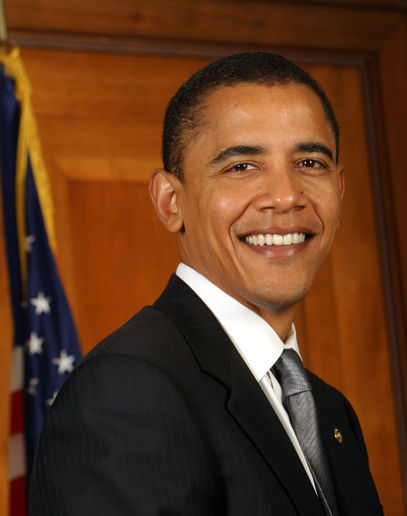US keeping a close eye on Iran's presidential election
 Washington - The United States will be keeping a watchful eye on Iran's presidential election on Friday, hoping for an outcome that will open the door for the two countries to begin discussions on a range of contentious issues.
Washington - The United States will be keeping a watchful eye on Iran's presidential election on Friday, hoping for an outcome that will open the door for the two countries to begin discussions on a range of contentious issues.
US President Barack Obama wants to reach out to Iran to curtail the Islamic state's nuclear ambitions while reining in Tehran's growing influence in the region and support for Hezbollah militants in Lebanon and Hamas in the Gaza Strip.
The White House has however been quiet about a preferred outcome in the heated race or whether it would welcome the defeat of incumbent President Mahmoud Ahmadinejad, a conservative hardliner who has refused to suspend Iran's nuclear programme and called for Israel to be wiped off the map.
"I'm not going to get into candidates," White House spokesman Robert Gibbs said.
Ahmadinejad's main challenger is Mir-Hossein Moussavi, a reformist more open to improving relations with the West who has strong economic credentials and has run a surprisingly tough campaign.
But observers doubt that a change of leadership will bring sweeping changes in Iran's foreign policy or its alleged pursuit of a nuclear weapons capability. Those policies are effectively controlled by ruling Islamic clerics who have said Iran's stance toward the West will not change unless Washington changes its policies in the region.
Obama campaigned on reaching out to traditional US foes like Iran, North Korea and Cuba, but has yet to outline his approach toward Tehran. Obama said in May that he will wait until after the election before he begins efforts to open dialogue with Iran.
"We are hopeful that, at that point, there is going to a serious process of engagement," Obama said during a meeting with Israeli Prime Minister Benjamin Netanyahu.
Obama has said that his overture toward Iran will not have an open-ended timeframe, and warned that he expects Tehran to respond positively by the end of the year and that progress is made in negotiations with Iran over its nuclear programme.
Iran maintains that its nuclear activities are only for producing civilian energy, but Washington and its partners suspect the programme is aimed at providing Iran with the capability to build atomic weapons.
Years of diplomacy under the Bush administration failed to persuade Iran to suspend uranium enrichment, a process to generate fuel that could be used for weapons that has been the focus of three UN Security Council resolutions placing limited sanctions on Iran.
Obama has said he will not permit Iran to obtain nuclear weapons, arguing it could destabilize the Middle East and spark an arms race with Arab states already nervous about Tehran's growing hegemony.
But it remains to be seen whether there are viable options for Obama to pursue in trying to contain Iran and its nuclear work, which has steadily progressed, prompting worries that Iran could have a nuclear capability within years - or sooner.
Even with a Moussavi victory, most Iranians see it as their national right to enrich uranium and maintain a nuclear programme. Moussavi adheres to that position, although he has criticized Ahmadinejad for his handling of the international dispute.(dpa)